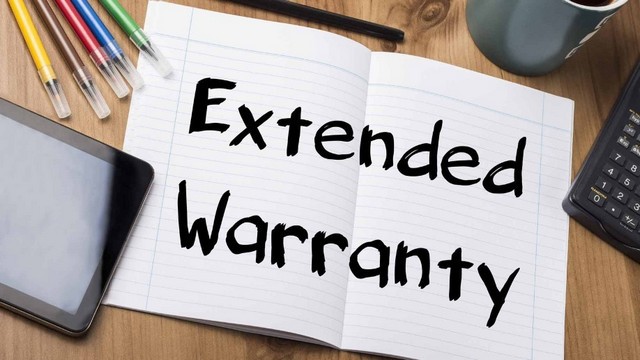A warranty is a promise or guarantees to provide some assurance from one party to another that certain conditions or even facts are true. If this promise is false then the warranty can be enforced to allow for a legal remedy. A warranty can be used to state that a certain condition is true at some point or whether it will continue for some time into the future.
A warranty can also be described as an obligation from the seller to the buyer that the products being sold are of the expected quality. If the warranty is breached there has a remedy which is often replacement of the defective product or repair of the same. There are different types of warranty which are explained in this example.
Table of Contents
Types of Warranty
1) Implied Warranty
An implied warranty is a presumed assurance in product sales. The assurance is treated as a warranty whether or not the product seller has given assurances of the same either in writing or even orally. Under implied warranty there are several other warranty types including the following:
a) Warranty of Merchantability
This type of warranty is implied unless the phrase ‘with all faults’ or ‘as is’ has been used in the identification of the sale. The warranty is also implied unless a disclaimer by its name has been issued in an express manner. For goods to be considered ‘merchantable’ they must conform in a reasonable manner to the expectations of an ordinary consumer.
b) Warranty of Fitness For A Particular Purpose
This type of warranty is implied when the buyer is relied upon by the buyer to select products or goods that will fit a particular request. For instance, if a motorist requests a mechanic for tyres that are safe for use in snowy conditions and the mechanic provides tyres that are unsafe for use in such conditions then this warranty will have been breached.
c) Warranty of Title
This type of implied warranty is used to imply that a person selling products has the right to do so, that is, the goods are legitimate. This saves the customer from ‘double payment’ if by any chance the products are confiscated (in the event that the goods are illegitimate), if the seller can easily be found then he/she can make restitution.
d) Warranty Of Habitability
This warranty is used to imply that by purchasing a property that is residential, the seller of the property is guaranteeing that it is suitable and safe to be occupied. If water, electricity and other amenities are unavailable on the property then the warranty is considered to have been violated and hence a legal remedy can be sort.
2) Extended Warranty
Also called service agreement, an extended warranty is usually offered to customers on top of the standard warranty that is issued on new products (vehicles). It is also known as Vehicle Service Contract. It can be offered by a retailer, manufacturer or warranty administrator.
This type of warranty is prolonged in nature and is a bit more costly. From time to time, multiple years extended warranties have it in in writing that for the duration of the first year of the warranty, in the event that a product is defective, customers must deal with the producer and not the seller.
Terms and conditions in extended warranties may sometimes not match the terms that were set originally. Some of the exclusions include; malicious destruction, owner abuse and acts of God. Parts that wear after some time like car tyres may also be excluded.
Extended warranty has several benefits some of which are explained by taking cars as examples:
-
Guaranteed Ability To Repair
As with most machines, all cars need repair and maintenance from time to time in order to remain in peak condition. It is because of this reason that an extended car warranty is essential for all car owners. Extended car warranty basically ensures that your car is repaired and maintained regardless of the financial situation you are in at the time.
-
More Comprehensive Coverage
Most cars when bought come with a new or used car warranty. Although useful, this warranty is limited in terms of what it covers meaning that you will shoulder the repair and maintenance costs or if they are covered when they are partially covered. Getting an extended car warranty will offer more comprehensive coverage for the unforeseen eventuality and therefore save you the stress of having to start sourcing for funds.
-
Peace of Mind
This is a fundamental reason why most car owners choose to get an extended car warranty. Generally, the hope is that the coverage will not be needed but unexpected events occur and that is when one is justified in getting a cover in the first place. For cars, owners do not anticipate repairs, new transmission systems or even engine overhauls but more often than not this need usually arises and it involves lots of cash. With an extended car warranty, you will not have to worry about anything as everything is already covered.
-
Savings
An extended car warranty can be likened to a savings plan where potential repairs and maintenance are financed at below the normal cost. Also, depending on the warranty cover chosen, you might not spend even a single cent on the repairs since all the costs will already be covered. Essentially, the monthly premium becomes the cost of the repairs which is highly reasonable compared to what the charge would be without the cover.
-
Increased Resale Value
If your car has a warranty, then its resale value increases. When selling your car you have to offer the buyer some good selling points for him/her to seriously consider buying your car. One of the best ways of doing this is by offering the buyer an extended warranty. This will go a long way in assuring the buyer that the car was very well maintained because most of the car issues were well taken care of.
With the current unpredictability of the economy, having a warranty is a great way of safeguarding against unexpected occurrences. It guarantees safety and bails you out when you are not in the financial position to incur unwarranted expenditure.


Well this is awesome post and written very well. Your point of view is very good.
Um………………..
Um…………………